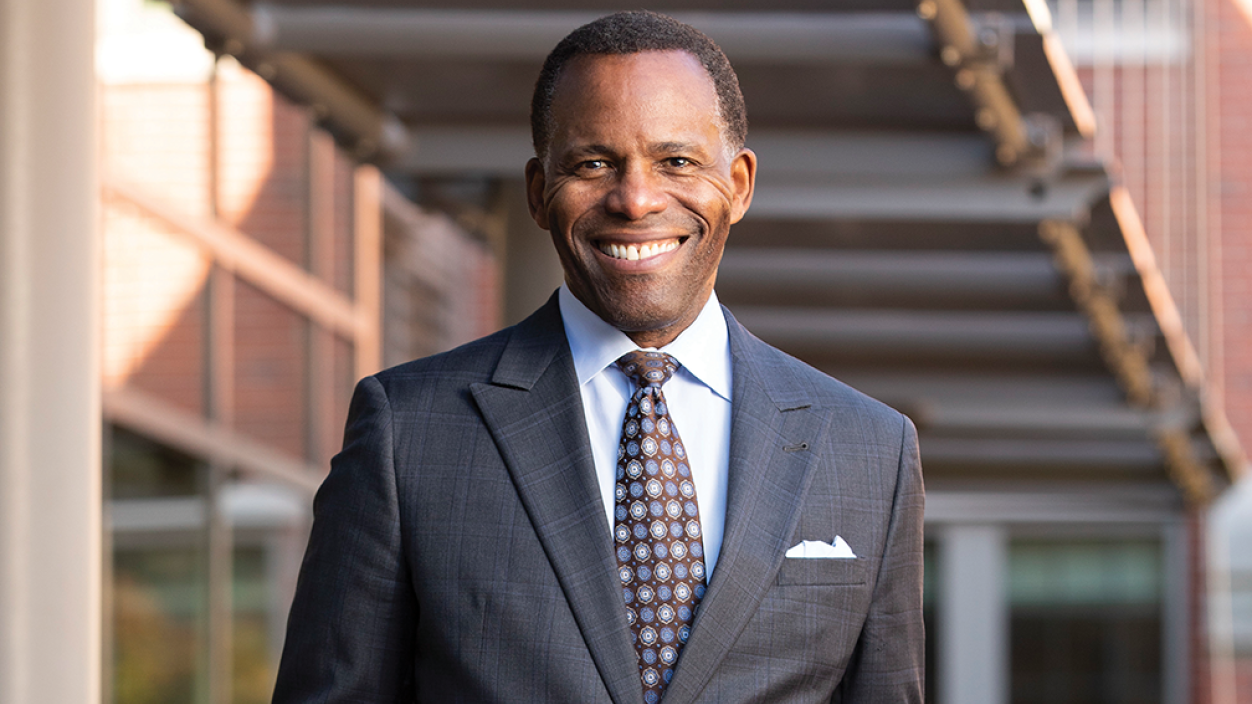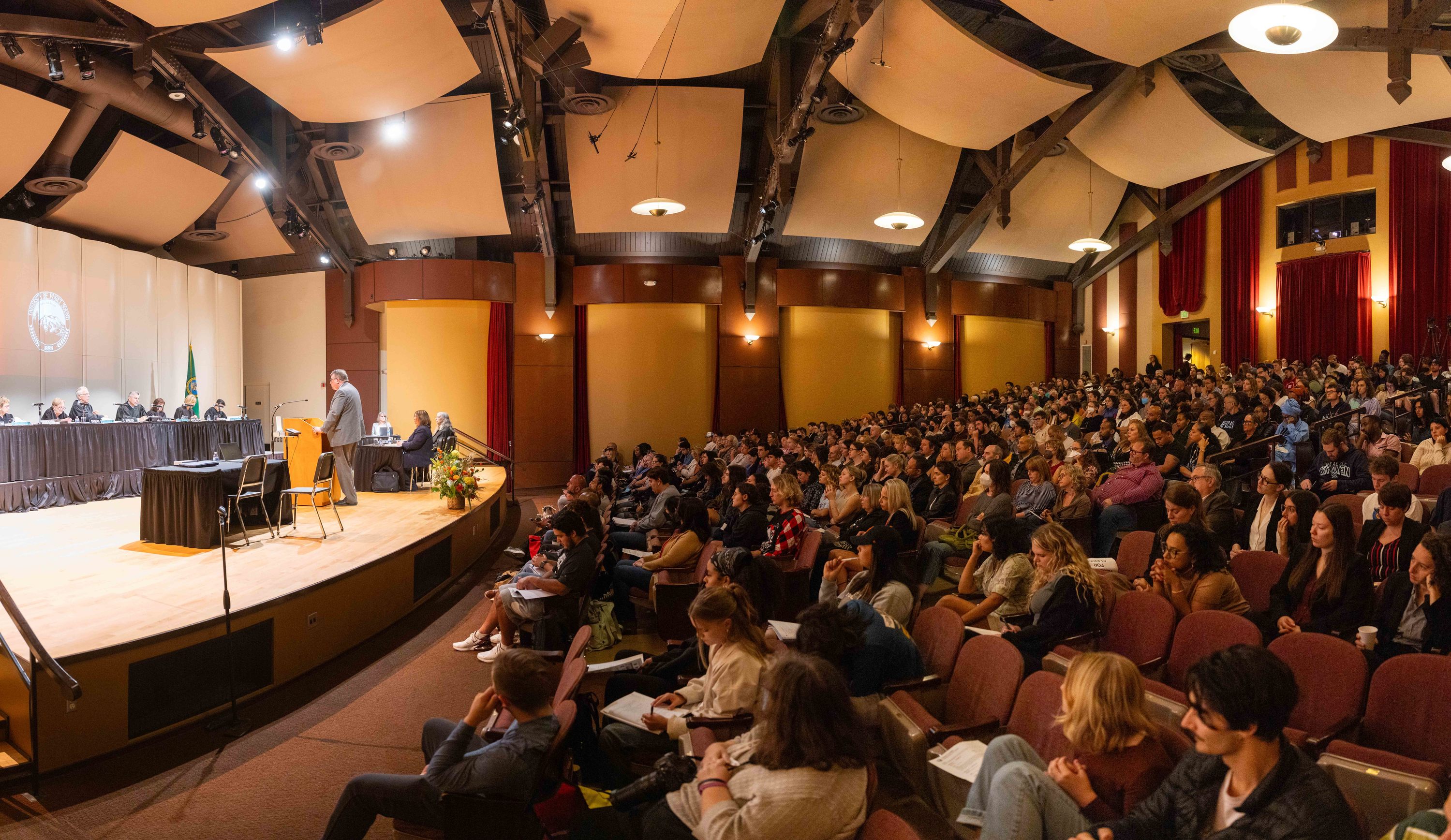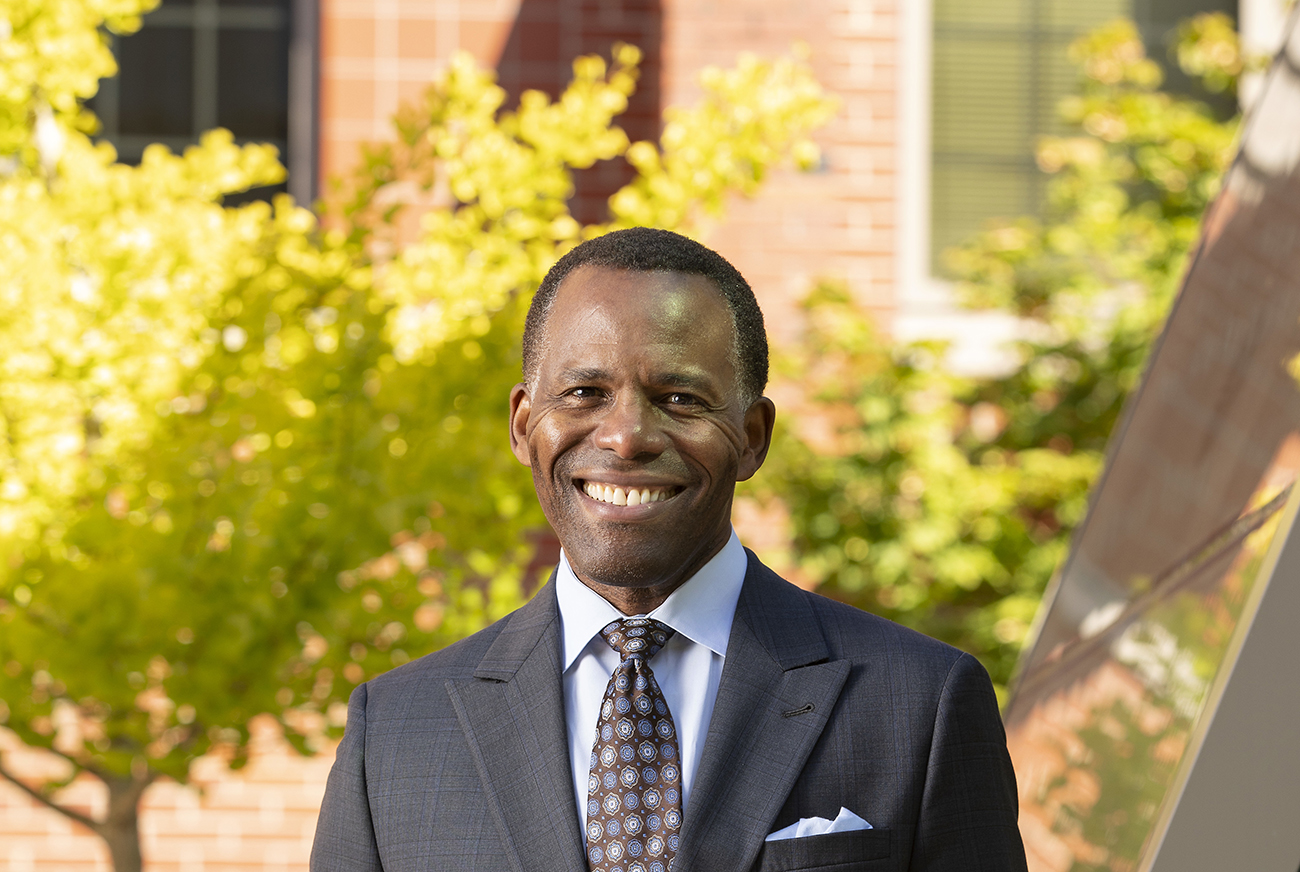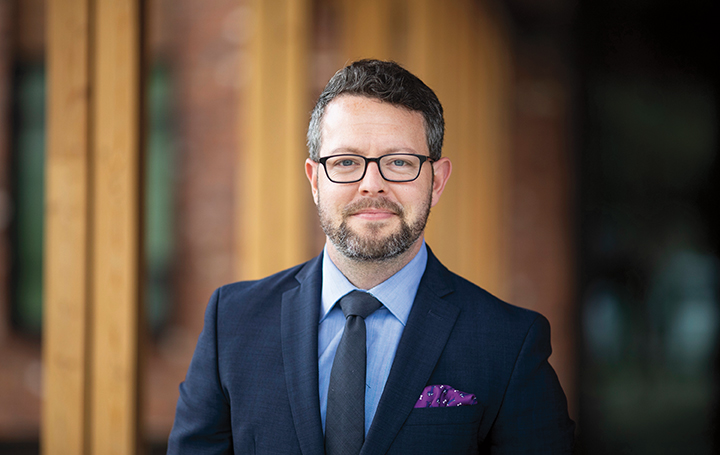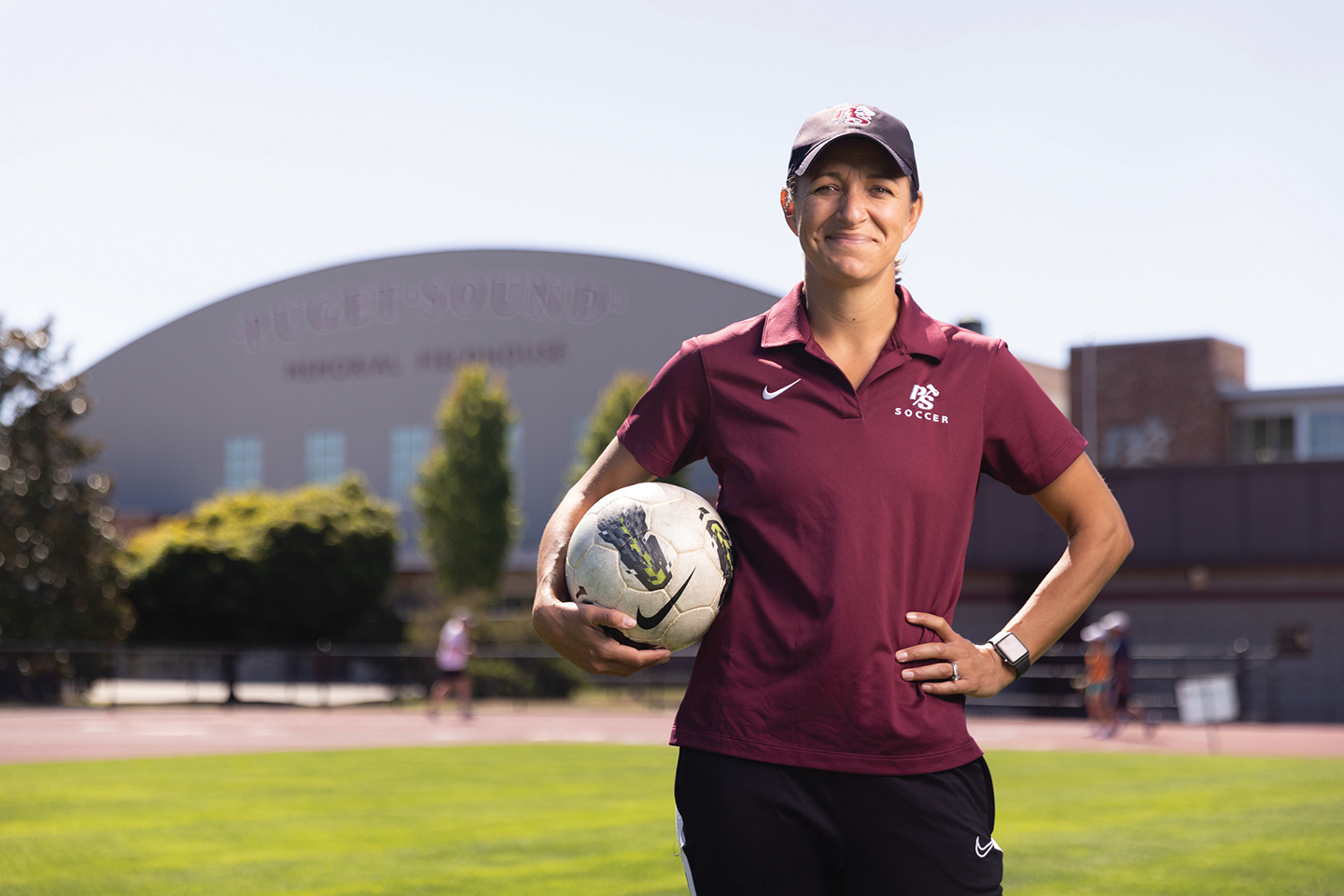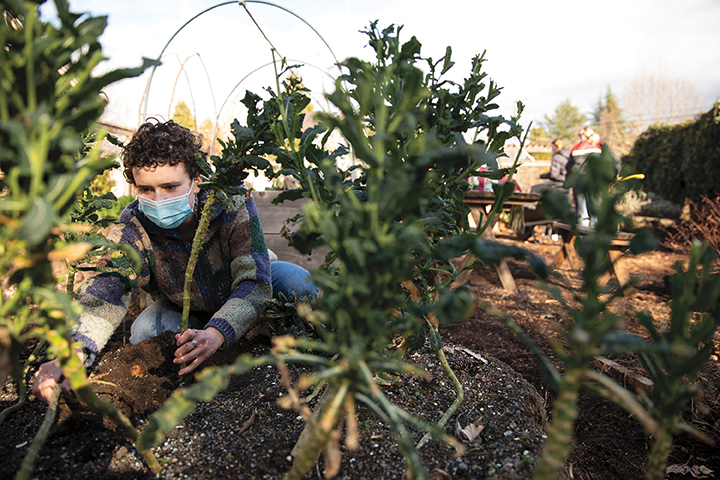When sustainability is mentioned in our strategic plan, it’s linked to a phrase you just mentioned: environmental justice. How do you define that term?
It speaks to the right of all of us to have a safe, healthy, productive, and sustainable environment, where “environment” speaks to the totality of a person’s existence—their biological, physical, social, political, and economic realities—such that essentially, everyone has a level of agency and the opportunity to live a healthy, self-actualized life. It means that the ability to protect and promote our needs doesn’t come at the expense of those who are less fortunate, that there’s an equitable approach to this work.
The university is in the process of developing a Climate Action Plan. What’s that about?
Lexi Brewer is leading that work as our director of sustainability, and we’re very interested in making sure that we get strong buy-in from the members of our community: our faculty, staff, and students, and our community partners. We’re looking to identify the barriers we need to overcome and investments we need to make in order to become a decarbonized campus. We certainly want to be carbon neutral, but we’re framing it as a goal of being decarbonized. The difference is that an institution can be carbon neutral by purchasing carbon offsets. Carbon offsets will be part of our strategy, I’m sure, but not the primary strategy, which is the case for many organizations.
The idea of offsets is that you could just pay a tax, essentially, to improve your climate score.
Yes. We’d rather not take that approach, if we can help it. I’m not saying we won’t have any, but our focus is on ways in which we can truly reduce our carbon footprint.
Something like 80% of the campus is heated using fossil fuels. Is that an area you’ll be looking to address?
Yes, and we’re very interested in taking advantage of geothermal heating and cooling. We do some of that already, and Lexi and Bob Kief [associate vice president for facilities] have some ideas about where we might be able to do more.
Besides heat and electricity, where else does sustainability become salient?
A good example would be to develop a comprehensive, university-wide composting program. We’re doing some pilot work now, and there are some immediate opportunities for us there. Another is the way we maintain our grounds—Bob and his team do a lot of good work, and there are opportunities to further decarbonize our grounds maintenance. We’ll also look at university travel and other areas.
How do you balance the necessary expenses in becoming decarbonized against the fact that budgets are already tight? Will you look for private support?
Yes, we certainly hope that some friends and alumni will want to support us in implementing our climate action plan, once it’s developed. We will also see if we can secure state and federal grants, as well as reaching out to foundations and other philanthropic organizations. But I also want to offer that this is a very important goal for our institution—so we will make whatever investments we can to support it through our operational budget.
What role do students play in this effort?
We want to make sure that our sustainability efforts have consistent student-led leadership, such that it just doesn’t go through one particular set of students over a four year-period and end there. Students will help us develop the climate action plan, will have instrumental roles in implementing strategies associated with it, and, we hope, will inspire their peers to engage in this effort. We anticipate not only that students will help us become a decarbonized campus, but also that more students will engage in sustainability-related coursework and scholarship, and pursue careers that focus on the environment.
